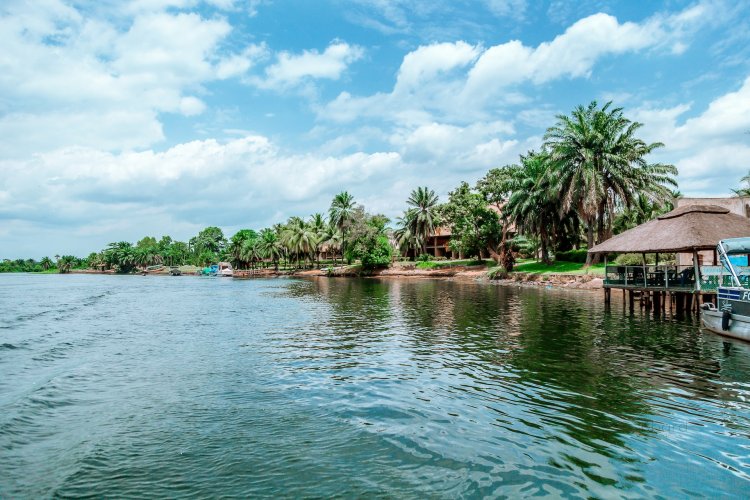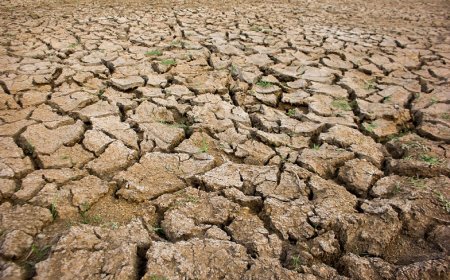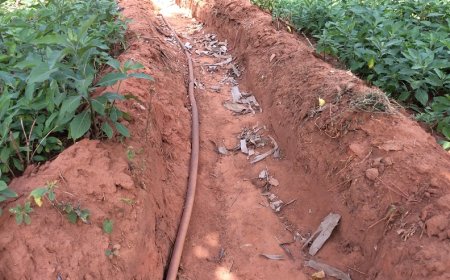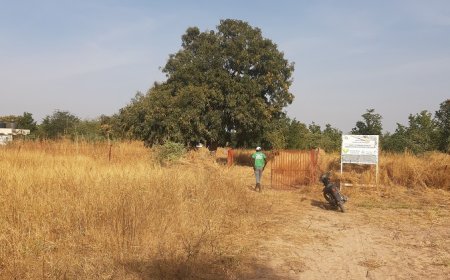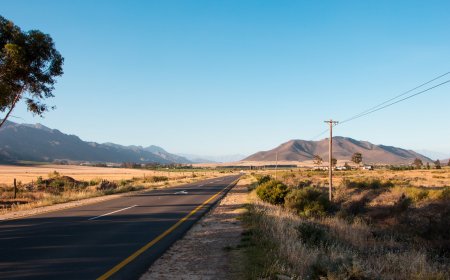In the context of COP27, APRI is interviewing experts about their visions for just climate actions. This interview is with Rukayatu Sanusi. Rukayatu Sanusi is the Executive Director of Ghana’s Climate Innovation Centre (GCIC), Ghana. In this interview, she highlights areas of progress and addresses underlying challenges as well as opportunities and starting points to support the development of, access to and use of technology and innovation for climate adaptation and gender equity in Ghana and beyond. She also provides recommendations for international policy makers and other stakeholders willing to and interested in working with African countries to address the challenges around development and climate action. Lastly, she reflects on opportunities presented by COP 27 and on how African policy makers should frame and articulate Africa’s needs, priorities, and opportunities around development and climate action to generate support and sustained action at home and abroad.
The interview was conducted by Dr. Grace Mbungu, Senior Fellow and Head of the Climate Change Program at APRI. The responses have been edited for clarity.
Dr. Grace Mbungu: You are an astute advocate for women's empowerment in the innovation sector, and as the Executive Director of Ghana’s Climate Innovation Centre (GCIC), your work reiterates the importance of women’s entrepreneurship in building resilient innovative businesses and putting women’s voices into action. Do you see any role for technology and innovation in enhancing gender equality in Ghana, and Africa more broadly? Where do you see the most potential? And why is it not happening in these areas yet?
Rukayatu Sanusi: There is definitely a role for technology and innovation to enhance gender equality in Ghana. There is always a role and an opportunity to enhance gender equality in everything, whether that is in business, policymaking… whatever it is. There is always a role. With reference to issues of climate change, when we consider innovation for climate adaptation and mitigation, we will find that climate change will bring many opportunities, in particular for the business sector, opportunities to adapt their manufacturing processes, their supply chains etc. The business and manufacturing sector are some of the biggest emitters of GHGs, and as such there needs to be requirements for innovation to low-carbon pathways. Relatedly, there are therefore opportunities to secure gender equality in accessing and executing the opportunities that come with climate change action.
Many years ago, diversity, inclusion, and gender mainstreaming started to be prioritized across the board, by the government sector and by the business sector, because there is value in gender diversity and inclusion, which comes through policy and government decisions and because there are different perspectives to consider in the overall decision-making process. Definitely, in terms of innovation, the perspective of different genders needs to come through in innovation in climate adaptation.
With regards to where I see the most potential, I think it is too broad a question. I feel that each country’s priority sectors for climate change action and low-carbon pathways are going to be different. If you look at the areas where we have the most emissions in Ghana, it is in the agriculture, forestry and other uses of land, the energy sector, the waste sector and then you have industrial use. In agriculture, we must find the potential in that sector to enhance gender equality because we know that a lot of women work in that sector as smallholder farmers. They are the ones working to ensure food security, for instance. We know the effect of climate change on agricultural processes, soil quality and yields. The most potential will depend on which sectors are priorities for each country. I think a lot of work is being done. In our incubator, we researched the topic over a year and identified five focus areas where Ghana needs intervention in terms of climate change action. A lot of agencies in the government sector are working on climate change issues, trying to mainstream gender into that sector: the Forestry Commission and the EPA, for instance. There have been a lot of interventions, and I think it is important to recognize that. More needs to be done, but a lot of work is already being done.
How are women entrepreneurs in Africa, particularly in Ghana, contributing to climate change adaptation through technology and innovation? Could you please give us some examples?
We have a woman-led enterprise, Kawa Moka Coffee Company, where they grow coffee beans and roast and sell them. They work with women smallholder farmers in a particular area in Ghana, and they export their coffee internationally as well. As part of the whole process of roasting coffee, there will be some emissions with the roasting process. One of the things we are supporting them with is a breakthrough solution that filters smoke, converts it into vapor and removes odor from the process of roasting coffee beans.
Let me give you another example. We have an enterprise that is a fashion business, an award-winning fashion house, run by two women. You might think, what does that have to do with climate change? An often-quoted statistic is the amount of water that it takes to produce one cotton shirt: 2,500 litres of water, which is what a person drinks in 2.5 years, that is if you look at the whole process, from how cotton is grown to the dyes that are used and the amount of water used for processing the textile. This fashion house has 50 workers. The first step we are taking is helping them transform their building into an eco-building in terms of energy efficiency, managing waste, and harvesting rainwater. Another thing we have also done is to connect them with another female-run enterprise in Nigeria that works with aquatic waste, particularly water hyacinth, which they then use to make luxury interiors primarily. They have worked with water hyacinth and bamboo to create textiles. It is the circular economy. As opposed to growing cotton, making textiles and using so much water, there are other ways in which you can be more efficient in textile manufacturing. I mentioned bamboo. I think they have also used pineapple skins. The hope is that, even if it is just 5%-10% of each new collection that this fashion produces, they are making a contribution to more sustainable fashion.
Another organization we are working with is an agricultural/farming business. They grow cassava, which is a food crop and a cash crop. They have their own farms, but they also add to their stock through a network of smallholder women farmers. Working with Ghana’s Council for Scientific and Industrial Research, they looked at technology and innovation around enhancing yields and how to nurture seedlings. The technique limits pests, increases yield, reduces land use and acts as a carbon sink. Those are just a few examples.
Women continue to have low participation in governance and in decision-making. What conditions need to be in place to facilitate equal participation of men and women in matters of climate action, especially climate adaptation?
First, I wanted to recognize that we have made progress, we may not have exactly equal participation of men and women in governance and decision-making, but we have made progress and that has to be recognized. In terms of the conditions that need to be in place around climate action, it is really about advocacy – and there are multiple interventions that can take place at the corporate, institutional and government levels, for instance. One institution may say in supporting smallholder farmers that they want to make sure they are supporting equal numbers of different genders. For instance, with our organization, we have an institutional policy whereby we must incubate equal numbers of men and women over the tenure of the project. We also conduct institutional gender audits, where we look at our curriculum, we audit our online and offline content, we check the language, the images, the tone we use to see if they are equal and welcoming to both men and women. Institutional policies should be promoting gender equality even in terms of staffing. Apart from issues around fairness, it is about diversity and inclusion, about the different perspectives that different genders bring into decision-making. We can advocate for new national laws, statutes, policies, but there are a lot of things we can do as institutions within society and within the business sector to facilitate equal participation. There has to be desire, first and foremost, and the way desire is aroused is through advocacy and demonstrating the benefits of equal participation.
There is a lot of talk about green recovery and building green economies. What role do you see women playing in this space? What are potential pathways and opportunities for women? And what needs to be in place to encourage and support women to take advantage of these opportunities?
For women to take advantage of any opportunities around green recovery, building green economies, they have to be aware of the opportunities there are, which goes back to the issue of advocacy. What do we know about green recovery and building green economies? How are we raising awareness about green recovery and the opportunities through workshops, conferences, social media handles, interviews in radio or TV so that people are aware? I think this is key, raising awareness so that everybody knows about it, informing them on how to participate; otherwise, deals will just get done behind closed doors. For instance, as part of our search and selection process, we particularly search for women entrepreneurs, and in some instances women who may never ordinarily apply to an incubator, simply because maybe they see incubators as entities for very early-stage businesses, and they see themselves as being stronger businesses. Because some of these women-led enterprises have operated and run their business without a loan from the bank, out of revenues and profits, money from friends and families, and their businesses are doing okay, they may not ordinarily want to be associated with an incubator or a donor-led program. We saw an opportunity to educate these businesses on the value of business incubation and how they can leverage it to scale their operations through knowledge brokerage. We particularly also sought for women-led enterprises where we saw opportunities for them to infuse sustainability and climate change issues into their business strategies and operations, what we call ‘greening’. There are more businesses globally who are not transitioning to low-carbon pathways than the ones that are; the number of green enterprises is lower. We therefore committed to advocacy for greener businesses and the need to get more ordinary businesses thinking about climate change. We thought that, if we get more established businesses to start infusing sustainability and climate change issues into their processes, we have a winner because these businesses are growing. We had a lot of work to do in advocacy, persuasion, and meetings with these entrepreneurs.
For instance, the lady that makes coffee, they use organic farming methods but if she is going to scale, for her shareholders, for her customers (international and local), even for the brand, sustainability is a good thing, particularly if you are exporting. Clients in some of the developed economies are concerned about these things. Globally CO2 emissions in roasting are a wide problem. There is technology available to reduce emissions from roasteries. Maybe, if they had not come to us, it would have taken them 5 years to even be able to afford this kind of machine. They would have had 5 additional years of higher levels of emissions. I give that example simply because there is a burden on us as institutions, government sector, financial organizations (bank and non-bank) to demonstrate interest in low-carbon pathways and go out of our way to identify green or greening businesses and to support them, particularly those led by women. Otherwise, we are just paying lip service.
We had a conversation the other day around carbon credits, and we spoke about some banking institutions. The question is how much knowledge is there among the local banking and financial sector around the green recovery? But yet, they are the ones that are giving loans and structuring deals. How much information do they have about ESG, about gender equality? How are they applying this? The responsibility is on all of us individuals, corporations, banking institutions, the government sector. Many will say that the government and public sector institutions are not doing enough, but you do not always need a government policy for everything, there is something called corporate responsibility, individual responsibility, enterprise responsibility, which can also be applied even without the government telling you it must be done because you have stakeholders, shareholders, institutional values and missions that should be driving how you do your work around equality, the green recovery, climate and sustainability. It is a collective responsibility.
In view of the disproportionate effects of the climate crisis on women, what do you consider priority issues that should be covered at the COP27 to address gender inequality and injustices as well as mitigate the risks and vulnerabilities of climate change impacts on women?
The opportunities for a call to action are many. There is a Gender Day at COP27. It is great that we have a gender day. I am sure there will be a lot of discussions, with a lot of locally-led African organizations who are talking about issues around building African climate resilience and enhancing gender justice and equity around climate action. I know those organizations will talk about what they are already doing. Perhaps the focus might also be on how the work of such organizations can be amplified: How we can use COP as an opportunity to partner with other organizations globally or in Africa, where we see backward or forward linkages. We do not always have to be doing the same thing. Recognizing the backward and forward linkages: this organization does this, we can do the follow-up action or the pre-activity, so to speak.
I would choose my message to be a very positive one: let’s deepen what we are doing regarding climate resilience, what we are doing to make climate resilience more diverse and inclusive so that it includes women and, particularly for us, women entrepreneurship even in the renewable energy sector. What are the opportunities for that, for women to act as catalysts for gender equity and climate action? There are many things that can be discussed. Talking about renewable energy, how can we really network at COP and bring them together so that they can broker knowledge from one another? I am sure this will be done, but I want to highlight it. A lot of resources are being spent by organizations around the whole issue of climate action, but how can we amplify our efforts by working together, working better, addressing the issues around climate resilience that takes into consideration diversity and inclusion, gender issues, gender equity, women in climate action…?
What are your recommendations for international policymakers and other stakeholders interested and willing to work with African countries on gender equality, technology and innovation, climate change adaptation and building resilient societies?
In the continent, we are dealing with economies that are resource-constrained in terms of financing. We are dealing with the fact that 4% of global emissions come from Africa, the rest is from outside the continent. We are dealing with competing priorities. Climate change is already affecting African countries, people, livelihoods, even though we are the lowest emitter. Action needs to be taken, action must continue to be taken and action needs to be deepened. Financing climate change action is a huge burden and African countries need assistance with financing climate action.
I think it might be easy to assume that African governments are not prioritizing climate action. The trajectories of African countries, as we transition to low-carbon pathways, are going to be different from the transitions and trajectories of Western countries. There must be room for African countries to path their own trajectories and transitions based on and aligned with priority sectors. What would be a huge climate innovation for the US or a European country may not be workable here because of cost, for instance, differences in weather, accessibility, etc. There needs to be a certain level of partnership, listening, iterative negotiating, deciding what will work and how it will work. My recommendation is about developing a partnership approach, recognizing that there are differences in what is a priority, recognizing some gains have been made in certain areas, recognizing that we need to deepen those, recognizing how we deepen gender equality, for instance. How do we deepen gender equality? My recommendation is to deepen the partnership approach, iterative approach, recognizing that approaches and methodologies may be different. Our focus is on climate adaptation as small incremental changes in some instances, and this is a medium to long-term adventure, we are building resilient societies. Some of that is for the long term. We have to prioritize financing to the continent.
What are your recommendations for African policymakers on how to articulate the disproportionate impact of climate change on women in the continent, priorities and opportunities around women’s empowerment, technology and innovation, and climate action in the upcoming COP27 and beyond?
Even at COP 26, the focus was about financing because without it you can get very little done. Last year we had floods in Germany, wildfires in the West Coast of the US and we have had hurricanes on the East Coast recently. You saw the preparedness for the hurricane, the number of resources applied to the wildfires and floods. I am sure individuals and families are still suffering, but in the US the federal government got involved. I do not know that we, as a continent, if we had similar disasters, could have responded to such disasters quite as quickly and efficiently, and without international development assistance. The impact is deeper for us. We are the smallest contributor to global emission, but we also have the most to lose. To that end let me talk about data.
I feel that there is a lot of data around. I know that, for instance, Ghana’s Environmental Protection Agency (EPA) is doing amazing work around climate data. I would like to see more use of data by our policy makers in their decision-making and in their requests to development partners. With data, we can see and forecast the scale and impact of climate change on societies and economies, when we forecast that impact in 5, 10, 15, 30 years’ time. Our policymakers could be using more data, more analysis to inform their conversations, budgets and government policies. What we have before us is a decade or two when population increases, more than half is going to be the youth. What does that mean for housing and employment? Are we going to see more rapid urbanization, jobs, livelihoods, skills? What does it mean for housing, waste management, water management, immigration, people who are internally displaced? What kinds of jobs will we need and in which sectors? What are opportunities for climate adaptation in those sectors now, as we prepare? Forecasting impacts is a good thing and using that to inform decision-making and conversations will help. I think two days ago the World Bank in partnership with GCIC launched the first country climate and development report. I believe the figure quoted was that, in terms of financing, Ghana needs US $2 billion a year for the next 30 years for climate action. They can say that because they have done research on what is really needed across sectors by institutions. Can we focus our conversations on that kind of content?
Rukayatu Sanusi
Rukayatu Sanusi is the Executive Director of the Ghana Climate Innovation Centre (GCIC), a business incubator focusing on developing SME ventures and entrepreneurs in Ghana’s green economy. Prior to her role at the GCIC, she worked in international consulting in the UK and Africa. She is also the founder of Alldens Lane, an advisory firm focused on supporting small and growing businesses, particularly those owned and run by women.
